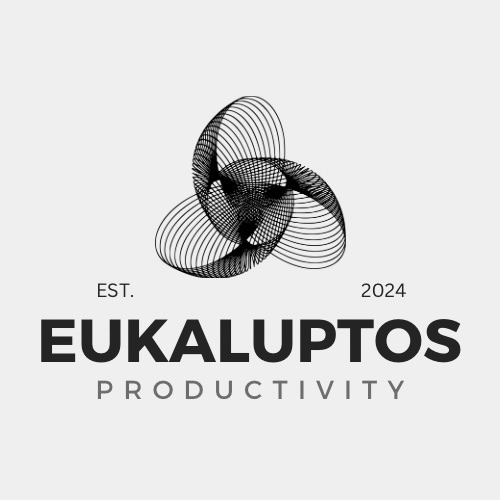Your Partner in Redefining Manufacturing
Manufacturing is at a critical juncture, facing unprecedented challenges that demand bold, innovative solutions. From stagnant productivity to workforce struggles and the uncertainties of automation, the industry needs a transformative vision to move forward. At EUKALUPTOS, our manufacturing and productivity thesis offers a roadmap for reshaping the future—one that prioritizes people, embraces innovation, and delivers sustainable growth.
Manufacturing & Productivity Thesis
Manufacturing faces a crossroads. Productivity gains have stalled, labor dynamics are strained, and the future is clouded by concerns over automation and workforce readiness. We offer a bold new manufacturing and productivity thesis designed to address these challenges head-on, transforming how businesses engage with their people and processes.
Breaking Through the Productivity Plateau
For decades, manufacturers have struggled with labor constraints and flatlining productivity. Without the deep cultural underpinnings of Japanese society, lean principles get us only so far, leaving employees feeling exploited rather than empowered. This disconnect halts progress, creating friction instead of fostering innovation. We reframe productivity by focusing on cultural transformation that builds trust and engages workers at every level.
Addressing AI & Robotics with Humanity
The rise of AI and humanoid robotics has created uncertainty about the future of labor. As manufacturing increasingly relies on technology, questions about the role of human workers grow louder. Our manufacturing and productivity thesis champions a balanced approach—leveraging technology to enhance, not replace, human potential while ensuring manufacturing remains a viable source of widespread employment.
Redefining Labor Classifications
Outdated labels like hourly vs. salaried and skilled vs. unskilled hinder progress. Productivity improvements focused solely on reducing physical labor offer diminishing returns, frustrating both capital markets and organized labor. We propose a paradigm shift: valuing the full spectrum of human contribution, including intellect and emotional engagement, to unlock deeper productivity gains.
Resolving Workplace Discontent
Labor disputes and rising compensation packages fail to address workers’ fundamental desire for time to live fulfilling lives. The result is a cycle of strikes, settlements, and unrest. We envision manufacturing as a ministry that serves its workforce, creating conditions where employees have time, purpose, and dignity.

Supporting a Tired & Aging Workforce
Demanding jobs and societal pressures weigh heavily on today’s shop floor employees, especially older workers who delay retirement. Physically and cognitively taxing roles, compounded by overtime and shift work, leave workers struggling to balance their professional and personal lives. Our approach introduces ergonomic improvements, flexible scheduling, and support systems that prioritize worker well-being alongside business outcomes.
Attracting the Next Generation
Manufacturing struggles to attract younger talent, even with rising wages. Perceptions of factory work as grueling and uninspiring keep many potential workers away. We promote a future where manufacturing offers meaningful work, competitive pay, and a supportive environment, making it an aspirational career path for young professionals.
Strengthening the Front Line
Front-line leaders are the bridge between labor and management, yet they face immense pressures. High administrative and emotional loads, rapid turnover, and limited opportunities to train new talent strain these critical roles. We equip front-line leaders with the tools and support needed to succeed, ensuring stability and fostering strong leadership.
Confronting Demographic Challenges
A shrinking pool of candidates poses a significant threat to manufacturing’s future. Aging populations in developed economies and insufficient job creation in developing ones exacerbate the issue. We help businesses reimagine recruitment and workforce development, ensuring manufacturing remains a pillar of economic and social stability.
Unified Theory of Manufacturing & Productivity
We believe that manufacturing must evolve into a ministry that serves both capital and labor. By fostering environments that prioritize worker engagement, health, and dignity, businesses can achieve sustainable growth and profitability. Our manufacturing and productivity thesis redefines the role of labor, unlocking hidden reservoirs of productivity while ensuring a thriving workforce.

Manufacturing & Productivity Thesis
Manufacturing faces a crossroads. Productivity gains have stalled, labor dynamics are strained, and the future is clouded by concerns over automation and workforce readiness. We offer a bold new manufacturing and productivity thesis designed to address these challenges head-on, transforming how businesses engage with their people and processes.
Breaking Through the Productivity Plateau
For decades, manufacturers have struggled with labor constraints and flatlining productivity. Without the deep cultural underpinnings of Japanese society, lean principles get us only so far, leaving employees feeling exploited rather than empowered. This disconnect halts progress, creating friction instead of fostering innovation. We reframe productivity by focusing on cultural transformation that builds trust and engages workers at every level.
Addressing AI & Robotics with Humanity
The rise of AI and humanoid robotics has created uncertainty about the future of labor. As manufacturing increasingly relies on technology, questions about the role of human workers grow louder. Our manufacturing and productivity thesis champions a balanced approach—leveraging technology to enhance, not replace, human potential while ensuring manufacturing remains a viable source of widespread employment.
Redefining Labor Classifications
Outdated labels like hourly vs. salaried and skilled vs. unskilled hinder progress. Productivity improvements focused solely on reducing physical labor offer diminishing returns, frustrating both capital markets and organized labor. We propose a paradigm shift: valuing the full spectrum of human contribution, including intellect and emotional engagement, to unlock deeper productivity gains.
Resolving Workplace Discontent
Labor disputes and rising compensation packages fail to address workers’ fundamental desire for time to live fulfilling lives. The result is a cycle of strikes, settlements, and unrest. We envision manufacturing as a ministry that serves its workforce, creating conditions where employees have time, purpose, and dignity.

Supporting a Tired & Aging Workforce
Demanding jobs and societal pressures weigh heavily on today’s shop floor employees, especially older workers who delay retirement. Physically and cognitively taxing roles, compounded by overtime and shift work, leave workers struggling to balance their professional and personal lives. Our approach introduces ergonomic improvements, flexible scheduling, and support systems that prioritize worker well-being alongside business outcomes.
Attracting the Next Generation
Manufacturing struggles to attract younger talent, even with rising wages. Perceptions of factory work as grueling and uninspiring keep many potential workers away. We promote a future where manufacturing offers meaningful work, competitive pay, and a supportive environment, making it an aspirational career path for young professionals.
Strengthening the Front Line
Front-line leaders are the bridge between labor and management, yet they face immense pressures. High administrative and emotional loads, rapid turnover, and limited opportunities to train new talent strain these critical roles. We equip front-line leaders with the tools and support needed to succeed, ensuring stability and fostering strong leadership.
Confronting Demographic Challenges
A shrinking pool of candidates poses a significant threat to manufacturing’s future. Aging populations in developed economies and insufficient job creation in developing ones exacerbate the issue. We help businesses reimagine recruitment and workforce development, ensuring manufacturing remains a pillar of economic and social stability.
Unified Theory of Manufacturing & Productivity
We believe that manufacturing must evolve into a ministry that serves both capital and labor. By fostering environments that prioritize worker engagement, health, and dignity, businesses can achieve sustainable growth and profitability. Our manufacturing and productivity thesis redefines the role of labor, unlocking hidden reservoirs of productivity while ensuring a thriving workforce.

Aligning Capital & Labor
The modern manufacturing industry faces a fundamental challenge—bridging the gap between the goals of capital and labor. Capital seeks greater earnings and growth with fewer resources, while labor desires more wealth, health, and time with fewer hours worked. We present a bold manufacturing and productivity thesis that aligns these seemingly conflicting interests into a unified path forward.
Balancing Worth & Return
- 100% of labor’s worth is represented as cost in traditional accounting models.
- 20% is considered a reasonable return on capital employed.
This discrepancy has fueled a system where productivity initiatives often prioritize capital over labor, creating friction that stalls growth. We propose a new framework: one that builds a twin helix of intertwined goals for investors and workers, fostering mutual success.
Building a Twin Helix of Goals
We advocate for a model where both capital and labor grow together by focusing on building new capabilities:
- For Investors
- Earnings
- Growth
- Brand Equity
- Innovation
- For Workers
- Wealth
- Love
- Health
- Time
This twin-helix approach fosters a collaborative environment that prioritizes human potential while driving business profitability.
- For Investors
Solving the Productivity Paradox
The existing productivity model is flawed:
- Capital’s Goal: Make more money with less capital and labor.
- Labor’s Goal: Work fewer hours and make more money.
Traditional productivity strategies treat labor as a “necessary evil,” relying on equipment upgrades and lean principles to reduce labor costs. This mindset limits the potential for long-term innovation and engagement.
Our Solution
- Retool labor and floor leadership to develop skilled, empowered teams.
- Create an incentivized workforce that directly contributes to earnings and growth.
- Harness untapped cognitive capacity within the workforce to deliver higher productivity and innovation.
“You never change things by fighting the existing reality. To change something, build a new model that makes the existing model obsolete.”
- Buckminster Fuller
At EUKALUPTOS, we’re redefining what’s possible by putting people first and embracing innovation to unlock sustainable growth. We’re reshaping the industry and creating a manufacturing ecosystem where businesses and workers thrive together. Contact us today for more details.
